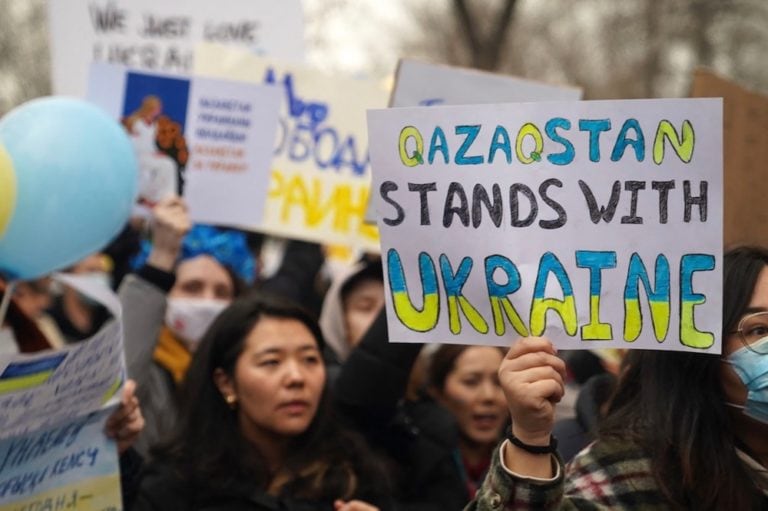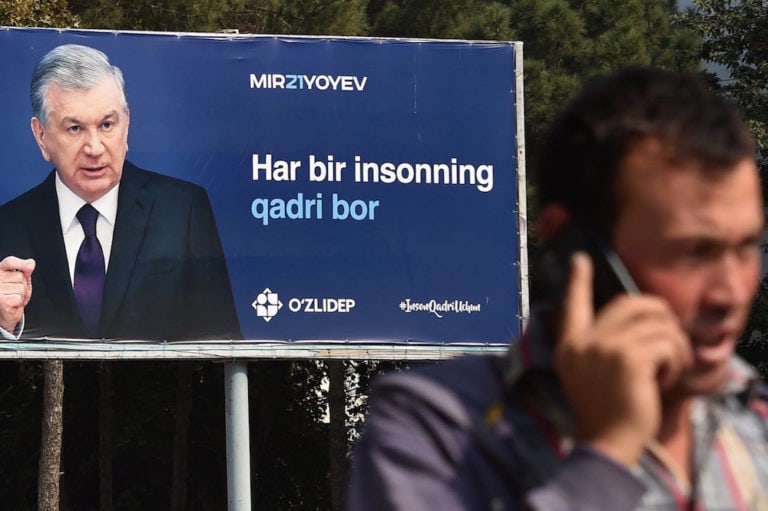The UN Human Rights Committee has called for urgent steps to rectify human rights violations.
(Human Rights Watch/IFEX) – New York, March 26, 2010 – The Uzbek government should urgently heed the UN Human Rights Committee’s calls to improve its rights record, Human Rights Watch said today.
Uzbekistan’s international partners, including the United States government and European Union member states, should make compliance with the committee’s recommendations a key component of their dialogues with Tashkent, Human Rights Watch said.
“The committee’s findings are damning, and underscore just how pressing the need is for serious, sustained pressure on the Uzbek government over its abysmal rights record,” said Holly Cartner, Europe and Central Asia director at Human Rights Watch. “Getting the Uzbek government to take the steps the committee has identified should be a key component of international dialogue with Tashkent.”
UN Secretary-General Ban Ki-moon’s trip to Central Asia next week provides a perfect opportunity to convey a strong message to the Uzbek government about human rights reform, Human Rights Watch said.
The Human Rights Committee – a UN monitoring body composed of 18 independent experts – scrutinized Uzbekistan’s rights record earlier this month as part of its periodic review of governments’ compliance with the International Covenant on Civil and Political Rights. Uzbekistan has been a party to the Covenant since 1995.
The review, held in New York, took the form of a direct exchange over two days between the committee and a delegation of Uzbek government officials. The committee issued the resulting observations today, at the conclusion of its three-week session.
Government persecution of human rights defenders and journalists, persisting torture and ill-treatment of detainees and the impunity with which it occurs, and the continued lack of accountability for the 2005 massacre of mostly unarmed protesters in the city of Andijan topped the committee’s concerns. It asked the Uzbek government to report back within one year on measures taken to address them.
On government repression of civil society, the committee voiced concern about “the number of representatives of independent NGOs, journalists, and human rights defenders imprisoned, assaulted, harassed or intimidated, because of the exercise of their profession.” It called on the Uzbek government to “guarantee journalists and human rights defenders in Uzbekistan the right to freedom of expression in the conduct of their activities” and to “allow representatives of international organisations and NGOs to enter and work in the country.”
It further urged the Uzbek government to ensure “prompt, effective, and impartial investigation of threats, harassment, and assaults on journalists and human rights defenders,” and asked the government to provide detailed information on all criminal prosecutions in such cases.
On torture and ill-treatment, the committee “note[d] with concern the continued reported occurrence of torture and ill-treatment;” “the use, by courts, of evidence obtained under coercion;” and “the inadequate or insufficient nature of investigations on torture/ill-treatment allegations.” The committee urged the Uzbek authorities to ensure an investigation “by an independent body in each case of alleged torture;” “review all criminal cases based on allegedly forced confessions and use of torture and ill-treatment and verify whether these claims were properly addressed;” and overall “strengthen[ed] measures to put an end to torture and other forms of ill-treatment (. . .) so as to avoid impunity.”
The committee also voiced concern about the judiciary’s lack of independence and the fact that the much-hailed habeas corpus (judicial review of detention) reform has not had the desired effect of protecting detainees from abuse. It urged that habeas corpus legislation be “fully applied throughout the country, in compliance with . . . the Covenant.”
On the Andijan massacre, the Committee expressed “concern at the absence of a comprehensive and fully independent investigation on the exact circumstances of the events during which several hundreds of civilians, including women and children, were killed by the military and security services.” It called on the authorities to “conduct a fully independent investigation and ensure that those responsible for the killings of persons in the Andijan events are prosecuted and, if found guilty, punished, and that victims and their relatives are given full compensation.”
The committee also raised concern about forced child labor, making clear it “remained concerned about reports, according to which children are still employed and subjected to harsh working conditions in particular for cotton harvesting,” and urging the government to “ensure that its national law and international obligations regulating child labour are fully respected in practice.”
The committee’s assessment also highlights a range of other important areas of concern – such as “limitations and restrictions on freedom of religion and belief, including for members of non-registered religious groups” and “persistent reports on charges and imprisonment of such individuals;” and “the number of persons reportedly detained as suspects of involvement in terrorist/extremist activities or on terrorist charges.”
The committee further expressed concern about detainees’ access to a lawyer; the effects of a recent relicensing of lawyers, which subjects defense lawyers to undue government control; excessive restrictions on political activism; violence against women; and harassment, attacks and discrimination on the basis of sexual orientation and criminalization of homosexuality. The assessment details numerous urgent measures the government needs to take to address these concerns.
“The Human Rights Committee has made clear the Uzbek government’s human rights record is simply unacceptable, and set out a road map for reforms,” Cartner said. “Now Uzbekistan’s international partners need to see to it that Tashkent does what it takes, once and for all, to remedy these abuses.”


